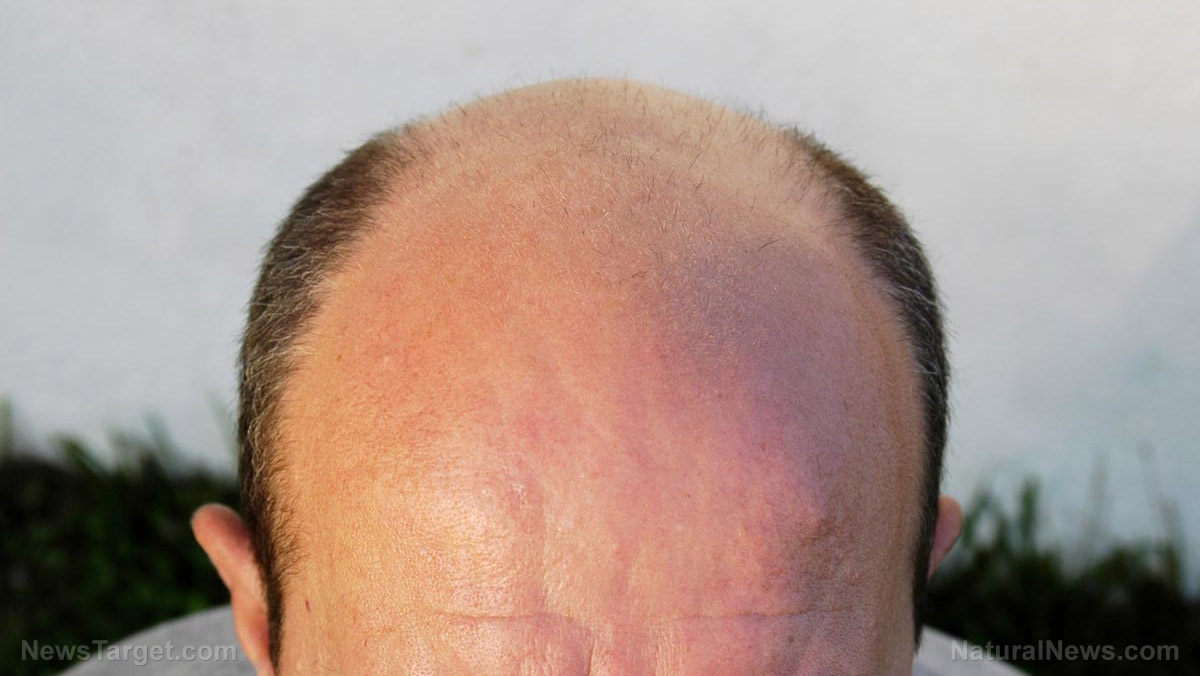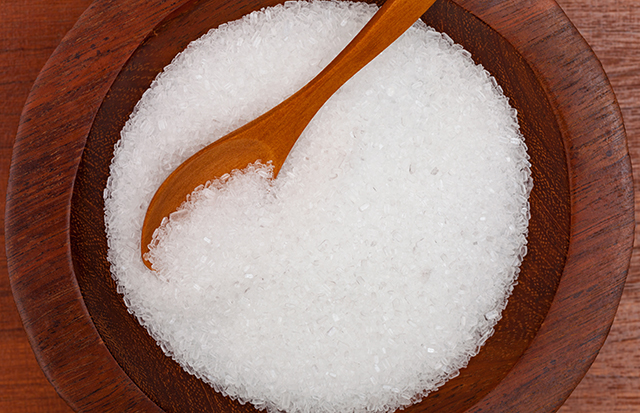Study: Eating foods high in iron and protein helps prevent hair loss in men
09/13/2022 / By Zoey Sky

Hair loss is a common problem among both adult men and women. Health experts said the best way to promote hair health and prevent hair loss is to follow a balanced diet rich in protein and iron.
They also warned that you should stop using shampoos that contain potentially hair-damaging chemicals like sulfates and formaldehyde.
Dr. Susan Massick, a dermatologist at Ohio State University in Columbus, advised men to act as soon as their hairline started to recede by following a nutritious diet and eating more foods like beef, black beans, chickpeas, eggs and pumpkin seeds.
Massick explained that these foods are rich in nutrients like protein and that the extra protein would help hair follicles grow. Foods like black beans also contain iron that can help boost the amount of oxygen red blood cells could carry to cells.
Massick also warned against the use of “remedies” like minoxidil, which is commonly known by its brand name Rogaine. The medicine is often given as a low-dose pill to help slow or “reverse” hair loss.
Other experts have also previously warned against using shampoos that contain sulfates, an ingredient found in almost all shampoos that triggers the white foam, and formaldehyde, a cleaning agent that kills bacteria.
Experts added that these two ingredients can cause hair damage and irritate the scalp, which then promotes hair loss.
According to estimates, over 50 percent of American men have suffered some form of hair loss by age 40. Many also spend a lot of money on so-called treatments even though there is little to no proof that they actually work. Men lose hair due to various factors, like a family history of balding, stress and chemicals in the environment.
Pattern baldness is triggered by the hormone dihydrotestosterone (DHT), which shrinks hair follicles. This then makes hair grow thinner and fall out more easily. Fortunately, you can slow pattern baldness if you catch it in the early stages so you can keep as much of your hair as possible.
Balanced diet naturally slows hair loss
According to Massick, hair loss primarily begins on your hairline, temples and the top of your head before it spreads to other areas. She added that you can naturally slow hair loss by following a balanced diet and eating foods full of nutrients like protein and iron, which will help keep your hair healthy and strong. (Related: Looking for a natural way to regrow hair? Try chaga mushrooms.)
While Massick didn’t say how much iron and protein to consume to prevent hair loss, estimates from the Food and Drug Administration (FDA) suggest men should consume about 50 grams of protein and up to 20.5 milligrams of iron a day.
These estimates are based on men that don’t exercise a lot, so if you are a relatively healthy and physically active adult you may need to consume more foods with iron and protein. If you think you have a deficiency, you will need a blood test.
Experts say a balanced diet can also help women suffering from hair loss. About 18 percent of adult women also experience hair loss.
Some studies suggest that a poor diet may be the culprit that triggers and speeds up hair loss.
The American Academy of Dermatology (AAD) also advised that people should “eat healthy” and ensure that they are getting enough iron and protein through a balanced diet to prevent hair loss. The AAD also said that people who got blood tests showing that they have iron deficiencies should take supplements.
Other experts have also previously suggested that a poor diet may be linked to more rapid hair loss.
Dr. Debra Jaliman, a dermatologist at the Icahn School of Medicine at Mount Sinai in New York City, explained that when your body doesn’t get enough protein, what is available gets funneled to essential organs. This means less protein is available for your hair.
Use the right shampoo to promote hair health
Men experiencing hair loss should avoid styling their hair because this pulls on the weakening follicles, warned Massick. She added that you should also avoid buying shampoos that claim to promote hair growth because they “don’t stay in your hair long enough” to penetrate follicles.
The FDA said sulfates and formaldehyde, which are commonly used to make shampoos, could trigger hair loss as they cause skin irritation. The two chemicals, which are also used in cleaning detergents, have been the subject of various concerns in the past. However, no scientific study has yet conclusively shown that they can are linked to hair loss.
Products that contain sulfates and formaldehyde include Head and Shoulders Classic Clean and Dove’s Men+Care Sport shampoo. There are many other shampoos that contain sulfates, listed on the label as sodium lauryl sulfate.
Hair loss can take on different appearances depending on its underlying cause. Some people may experience a widening part, more visible scalp, or excess hair falling out while brushing or washing their hair.
You may also notice parts of your scalp where hair is thinning or receding. If you have a condition like alopecia areata, you may see a coin-sized area of smooth and bare scalp.
Overwashing with shampoo may harm your hair. Sulfates and other ingredients have been linked to frizz, scalp dryness and fragile hair.
There’s no evidence that any specific ingredients in shampoo cause hair loss, but they might harm hair health. If you notice that your hair is too dry or frizzy, try a shampoo that’s made with natural ingredients.
Visit Remedies.news to read more articles with tips on hair care.
Watch this video to know more about iron deficiency.
This video is from the Dr. Farrah MD channel on Brighteon.com.
More related stories:
Experiencing hair loss while on keto? It might be triggered by your lifestyle.
Study reveals fermented water chestnuts help with symptoms of balding, hair loss.
Sources include:
Submit a correction >>
Tagged Under:
balanced diet, food cures, food is medicine, formaldehyde, hair growth, hair health, hair loss, iron, natural cures, natural medicine, nutrients, nutrition, prevention, proper diet, protein, remedies, research, shampoos, sulfates
This article may contain statements that reflect the opinion of the author
RECENT NEWS & ARTICLES
Natural.News is a fact-based public education website published by Natural News Features, LLC.
All content copyright © 2018 by Natural News Features, LLC.
Contact Us with Tips or Corrections
All trademarks, registered trademarks and servicemarks mentioned on this site are the property of their respective owners.





















